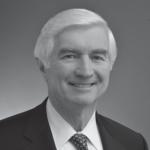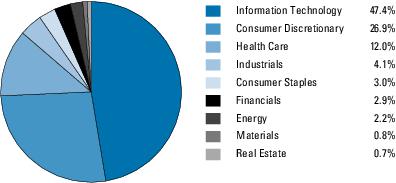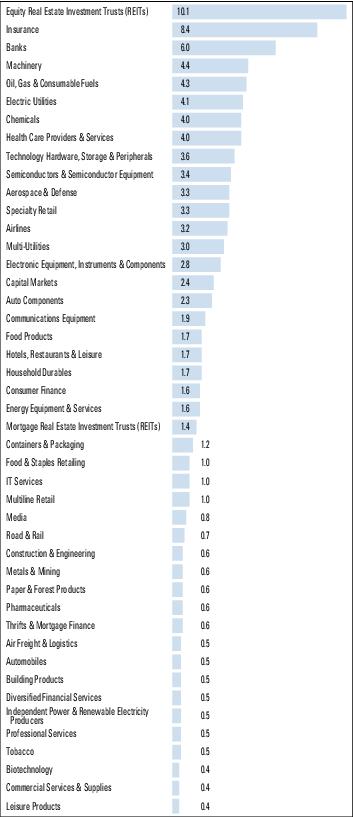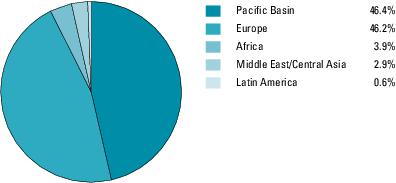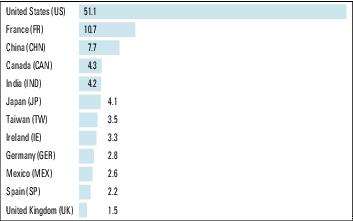ADVISORY AGREEMENT APPROVALS—Continued
fourth, third and fourth quartiles, respectively, according to Morningstar data. The Trustees also considered the fact that the Fund had underperformed its benchmark, the Bank of America (“BofA”) Merrill Lynch All US Convertibles Ex Mandatory Index, for the one-year, three-year, five-year, and since inception periods ended December 31, 2016. The Trustees noted that the shorter time period since the Fund’s inception did not support any significant conclusion about the performance of Shenkman Capital Management, Inc. (“Shenkman Capital”) in this strategy.
The Trustees considered the expertise of Shenkman Capital in managing assets generally and in the convertible securities asset class specifically, noting that Shenkman Capital managed approximately $1.1 billion in assets in this asset class, out of a firm-wide total of $30.76 billion in assets under management. The Trustees also noted the significant experience of the Fund’s portfolio managers in this asset class, including the lead portfolio manager’s experience prior to joining Shenkman Capital.
The Trustees observed that the Broadridge comparison of contractual management fees for the Fund’s expense group, assuming an asset level of $450 million, showed the Fund’s management fee was above the group median for the Institutional Class. The actual total expense ratio of the Fund’s Institutional Class was above the group median but below the universe median. The Trustees also considered the Adviser’s proposal to add a voluntary advisory fee waiver for the Fund until at least February 28, 2018. It was noted that this waiver would have both an immediate fee reduction effect, and, as the Fund grows, a future continuing one. The Trustees noted that the Adviser’s profitability in operating the Fund was not excessive.
Harbor High-Yield Bond Fund. The Trustees considered Harbor High-Yield Bond Fund (inception date December 1, 2002), noting the Fund’s underperformance relative to its Broadridge group and universe medians for each of the one-, two-, three-, four- and five-year periods ended December 31, 2016. The Fund’s one-, three- and five-year rolling returns as of December 31, 2016 ranked in the third, third and fourth quartiles, respectively, according to Morningstar data. The Trustees also considered the fact that the Fund had underperformed its benchmarks, the BofA Merrill Lynch U.S. High Yield Index and the BofA Merrill Lynch U.S. Non-Distressed High Yield Index, for the one-, three-, five- and ten-year periods ended December 31, 2016. The Trustees considered that the Fund’s subadviser, Shenkman Capital, utilizes a more conservative high yield bond investment strategy that often underperforms in periods when high yield bonds are generally performing well.
The Trustees considered the expertise of Shenkman Capital in managing assets generally and in the high-yield asset class specifically, noting that Shenkman Capital managed approximately $9.49 billion in assets in this asset class, out of a firm-wide total of $30.76 billion in assets under management. The Trustees also noted the significant experience of the Fund’s portfolio managers in this asset class, one of whom is the founder of the firm.
The Trustees observed that the Broadridge comparison of contractual management fees for the Fund’s expense group, assuming an asset level of $1.925 billion, showed the Fund’s management fee was at the group median for the Institutional Class. The actual total expense ratio of the Fund’s Institutional Class was below the group and universe medians. The Trustees also considered that the Adviser proposed to continue the Fund’s existing contractual fee waiver/expense reimbursement arrangement until at least February 28, 2018. The Trustees noted that the Adviser’s profitability in operating the Fund was not excessive.
Harbor Bond Fund. The Trustees considered Harbor Bond Fund (inception date December 29, 1987), noting the Fund’s underperformance relative to its Broadridge group and universe medians for the one-, two-, three- and four-year periods ended December 31, 2016, its underperformance relative to its Broadridge universe median for the five-year period ended December 31, 2016, and its performance at the Broadridge group median for the five-year period ended December 31, 2016. The Fund’s one-, three- and five-year rolling returns as of December 31, 2016 ranked in the third, third and second quartiles, respectively, according to Morningstar data. The Trustees also considered the fact that Harbor Bond Fund had outperformed its benchmark, the Bloomberg Barclays U.S. Aggregate Bond Index, for the one-, five- and ten-year periods ended December 31, 2016 while underperforming its benchmark index for the three--year period ended December 31, 2016.
The Trustees considered the expertise of Pacific Investment Management Company LLC (“PIMCO”) in managing assets generally and in the bond asset class specifically, noting that PIMCO managed approximately $160.5 billion in “total return” assets, out of a firm-wide total of approximately $1.47 trillion in assets under management. The Trustees also noted that the Fund’s co-portfolio managers each had significant experience in the bond markets.
The Trustees observed that the Broadridge comparison of contractual management fees for the Fund’s expense group, assuming an asset level of $2.5 billion, showed the Fund’s management fee was above the group median for the Institutional Class. The actual total expense ratio of the Fund’s Institutional Class was below both the Broadridge group and universe medians. The Trustees also considered that the Adviser proposed to continue the Fund’s existing contractual fee waiver/expense reimbursement arrangement until at least February 28, 2018. The Trustees noted that the Adviser’s profitability in operating this Fund was not excessive.


